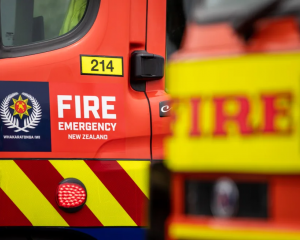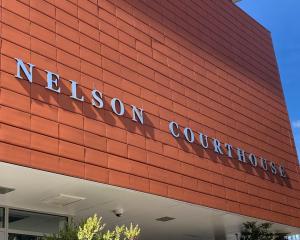Deer farmers want something done about being hit with penalties for Nait non-compliance for animals they say were tagged appropriately when they left the farm for slaughter.
It has been mandatory for all deer farmers to join the National Animal Identification and Tracing (Nait) scheme, designed to protect animal health and biosecurity, since March.
The scheme started in July last year when all cattle had to be tagged and tracked.
Since joining the scheme, some deer farmers have reported that some deer that left the farm properly tagged are being recorded as having no tag, or as having an unreadable tag when scanned at the meat works. Those farmers are then charged a levy for non-compliance.
Cattle farmers say initially they faced similar issues.
At the New Zealand Deer Farmers' Association (NZDFA) annual meeting in May, the Southland Deer Farmers' Association put forward a remit asking the executive and Deer Industry New Zealand (DINZ) to look into the issue. It was carried unanimously.
In the Southland association's view, ''large numbers'' of deer were attracting the $13 non-tag levy for having missing or unreadable tags when stock arrived at the works.
The remit wanted Nait to grant a dispensation on a percentage basis to farmers caught up in the ''teething problems'' until they were resolved.
It said farmers had already invested $4 to $5 on the tag - money they would not recoup - and had to take time out to sort the problems.
Nait chief executive Russell Burnard told the meeting he expected the issue would resolve itself in a ''matter of weeks rather than months or years''.
He recommended ''talking'' so the issues could be dealt with ''case by case''.
Nait merged with the Animal Health Board on July 1, becoming Operational Solutions for Primary Industries (Ospri), with a subsequent change in management.
NZDFA chairman Kris Orange last week told Courier Country scanning was ''quite a big issue'' in Canterbury and nationwide.
Mr Orange, who runs the Geraldine-based New Zealand-wide transport company Downlands Deer Transport, said that, from the transport operators' standpoint, it was not an issue of tags falling out.
Farmers were ''quite frustrated''. In his opinion, Nait had not done enough to ensure meat processors' systems and procedures were effective.
''We found an issue early but Nait really didn't want to do anything about it.
''We weren't getting any traction that's why we put that remit through,'' Mr Orange said.
''With product prices low, $13 [per tag] amounted to a significant penalty.''
It was ''the last straw''.
Although farmers could get a refund they had to ''get to the right person''.
The levy was collected by Nait and meat processors acted only as the intermediary between Nait and the farmer.
''[But] the onus has been left to the farmer to sort out the mess.''
He thought it was ''poor PR'' on Nait's behalf.
''Farmers were anti anyway, now their backs are up.
''I would have thought they could have sorted it out quickly if they had gone to the plants to ask to look at the process.''
DINZ producer manager Tony Pearse said he was still trying to gather evidence about how widespread the issue was and get a breakdown of which deer ''truly had no tags''.
Nait was able to tell him was there were ''very few'' tags which did not scan at all, he said.
The numbers ITT (Impractical-to-Tag) for the first three months of operations was about 5% of deer submitted, he said.
''[Small numbers with no tags] while in the transition phase is not a big deal,'' he said.
He was aware some processors, in the face of farmer ''discontent'', had put extra measures in place, like ''double-scanning''.
Some were making refunds at their own cost, he said.
Mr Pearse said DINZ had met Nait on several occasions.
Nait had indicated it was ''not inclined'' to make an exception for any percentage of deer recorded as not having a tag, he said.
It had put field staff into plants to audit systems and find out if there were problems and why.
It was a ''work in transition as systems develop'', he said.
Mr Pearse said while Nait had told farmers they did not need scanners, if farmers had a scanner, it would be wise to use it and send a list of deer leaving the farm to the plant as verification.
''The worth of having a scanner is far outweighing the cost,'' Mr Pearse said.
A meeting with Ospri's newly-appointed Nait scheme manager Stu Hutchings was planned for Tuesday this week, Mr Pearse said. A Nait spokeswoman was unable to comment fully as the organisation was still in the process of merging.
For the past four months, it had been working closely with DINZ and venison processors to educate the sector, she said.
Information had been sent to venison processors about what to do if the tags did not ''read''.
Nait staff had spent time at venison plants observing processes and procedures and answering workers' questions.
''Where we can help farmers out we do.''
Nait could help prove the animal was tagged by supplying the tag number to the processor if the deer was registered.
It welcomed feedback and questions about the scheme.
As well, information was available on the website or people could contact the call centre or talk to their regional Nait field representative, she said.
Federated Farmers Meat and Fibre executive member and North Otago president Richard Strowger said it was unsatisfactory to find deer farmers were experiencing the same kind of problems cattle farmers faced.
''You'd like to think that the message got through ...
''If it didn't get through, then why the hell not?''You'd like to think they'd had it sorted.''
Mr Strowger said despite the issues, the system had already proved its worth against bovine tuberculosis.












